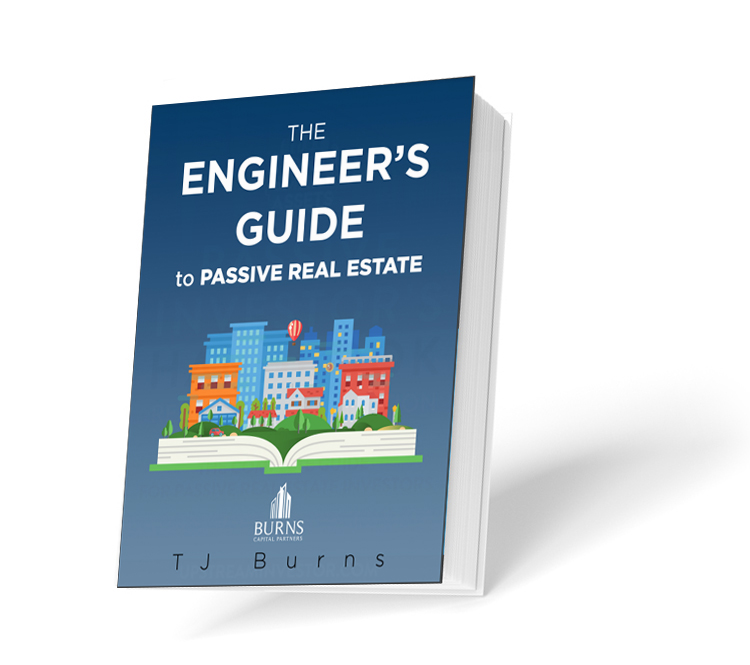
I don’t remember exactly when I realized that real estate was a tremendous way to build wealth.
But I do remember my obsession with it when I first started my engineering career. My commute was about 45 minutes each way, which turned out to be perfect for podcast episodes. I’d wake up in the morning and start scrolling blog posts on depreciation. At night, I’d read news articles on market metrics.
5 years later, it turns out I was on to something. There’s no doubt in my mind that real estate is one of the best ways to build wealth. Don’t take it from me though. There are many articles that illustrate the link between the wealthy and real estate.
What I didn’t understand was this:
The most efficient way to build wealth in real estate as a technology employee is NOT to become an active investor.
Real estate investing, when done right, is not passive. Make no mistake, you are running a business. The performance of that business is dependent on your ability to run it well.
Sure, you can automate many things. But that requires skill and knowledge. You must trade your time, money, or both to gain the skill and knowledge required to operate at a high level.
Most technology employees do not have a lot of extra time. If this is you, then your job may be competitive, demanding, and stressful. Your time as an engineer is best spent being an engineer, which has many benefits.
In other words, determine what your time is worth in a dollar amount. If your time is valuable, then it may not make sense to build a real estate business from scratch. The exception is if you enjoy real estate investing, of course.
When I was getting started in real estate investing, I didn’t know anyone in the business. I thought that active investing was the only logical choice. I didn’t realize that you don’t have to be an active investor to realize all the benefits.
That there is a real need for partners that act as investors, and not as active managers. So when I found out about real estate syndications, it was exactly what I was looking for.
After a number of investments, here are the top reasons why I’ve found passive real estate investing to be a great asset to an engineering career:
1. Cash Flow:
The tech sector is all about growth. Company profits go right back into the business. Most technology companies pay out a small or no dividend as a result.
A critical component of passive real estate investing is the cash flow. Good real estate investments make a profit, which goes back to investors. You can expect regular distributions, either monthly or quarterly.
2. Diversification:
The technology sector has been one of the best investments over the history of the stock market. New ideas drive human innovation forward, and those that bring them to life benefit.
Huge reward comes with huge risk, and it is why the tech sector can be so volatile. Employees that receive compensation through RSUs or stock options are dependent on the stock going up or staying flat.
This is great in 2020 & 2021, but sucks in 2022. Diversifying into investments like real estate, which have a low correlation with the tech sector, is a good way to hedge your risk.
3. A Numbers Game:
Underwriting is the process of evaluating a deal from a numbers standpoint. The spreadsheets used to evaluate large multifamily buildings can be massive, and for good reason. There are a lot of inputs.
Changing any of the inputs that are highly levered, like the cap rate, will have an outsized impact on the returns output.
If you’re analytical, like many engineers are, then you’ll have an advantage when investing in a numbers driven business like real estate.
4. Stability:
Historically, Real Estate is a stable asset class that is less prone to severe downturns.
According to the National Council of Real Estate Investment Fiduciaries (NCREIF), the chart below shows the measurement of real estate performance as a reflection of “up” and “down” years across an 80-year period from 1934 to 2013.
This demonstrates that real estate has more “up” years and fewer “down” years than stocks and bonds.
5. Time:
Being an active real estate investor involves operating a business. If you like running a real estate business, then go invest actively.
However, many people who invest in syndications do so because they are BUSY. Passive Investing requires time, but the commitment is up front in the form of due diligence on the sponsor and the deal.
Ongoing responsibilities drop to be minimal once you invest, besides reading the reports and collecting your distributions.
6. Tax Benefits:
Real estate comes with many tax benefits. One of the most powerful is depreciation. Depreciation allows for the building value to be deducted as an expense item, even though the building normally appreciates in value.
Because of this, most of the income from real estate is tax-deferred. That is, you don’t pay much in tax up front, and you re-pay the tax later on at a lower tax rate. This is in contrast to a high paying W-2 job, which is taxed as income at up to 37%.
7. Access:
Most people don’t have the ability to invest in private real estate offerings. Many syndications require accredited investor status. Also, minimums for this type of investment start at $25k and go up to as much as $100k.
Just because you can invest in something doesn’t mean you should. But it is interesting that most of the population has no access to alternative investments, which are preferred by the ultra-wealthy.
For example, this article states that family offices are increasing their allocations to alternative investments, like private equity and real estate. If they are considering it, then it may be something that you should look at too.
8. Economies of Scale:
Syndications provide access to economies of scale that most investors cannot afford on their own.
If a landlord owns one unit, everything is expensive. Maintenance people, materials, property management, lending… the list goes on. At scale, everything becomes less expensive.
On a per unit basis, property management fees go down, repairs and maintenance are cheaper, and vacancies can be absorbed without destroying cash flow. Everything is more efficient.
9. Limited Liability
Buying your own rental property means that you sign on the debt.
If the market crashes, and you need to sell, you may end up owing more money to the bank than your initial investment. Further, you’re liable for providing safe housing, and can be sued for negligence.
Alternatively, you don’t sign on debt as a limited partner, and your risk is capped at your initial investment. You’re also not involved in day-to-day operations, which insulates you from lawsuits.
10. Returns:
After 10+ LP positions, I’ve found that cash flow on syndications is in-line with a ‘turnkey’ rental property, which is 7-10% cash on cash on average, and roughly a 2X equity multiple over 5 years. I consider this a great passive return for my own capital, without the work required in an active investment.
Interested, but don’t know where to start? Join others who are learning about real estate investing every month by signing up for our newsletter.

